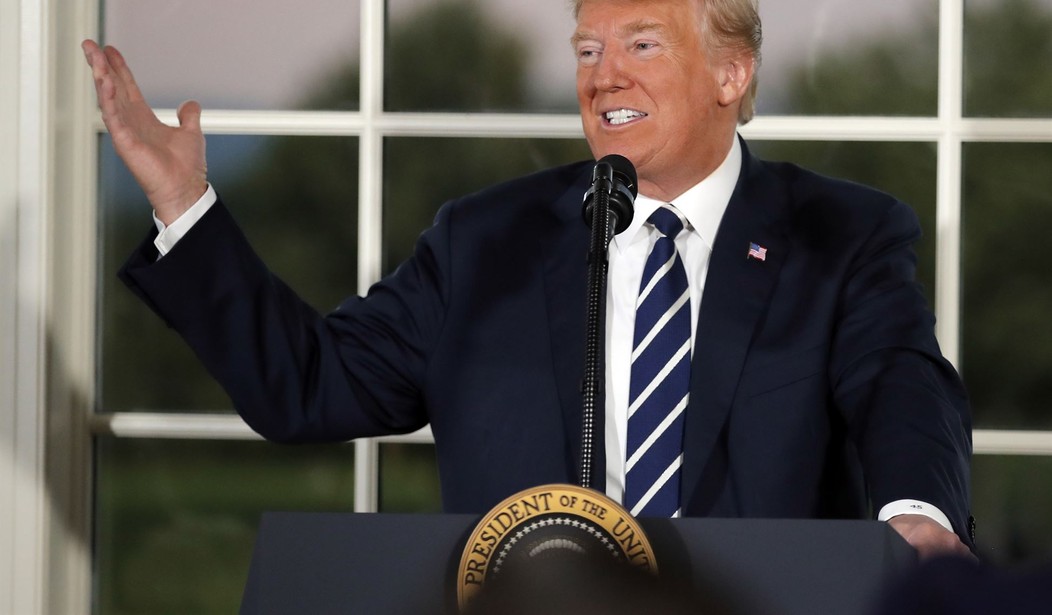When federal prosecutors are nearing the end of criminal investigations, they often invite the subjects of those investigations to speak with them. The soon-to-be defendants are tempted to give their version of events to prosecutors, and prosecutors are looking to take the legal pulse of the subjects of their work. These invitations should always be declined, but they are not.
Special counsel Robert Mueller -- who is investigating President Donald Trump for obstruction of justice, pre-presidential banking irregularities and conspiracy to solicit or receive campaign aid from foreign nationals (the latter is what the media erroneously call collusion) -- has made it known to former New York Mayor Rudolph Giuliani, the head of Trump's legal team, that he wants to speak to the president.
Should Trump voluntarily speak with Mueller? In a word: No. Here is the back story.
Though I have been critical of some judgment calls made by Giuliani in his representation of Trump, I recognize, like anyone who has watched him or worked with or against him, that Giuliani is a smart and experienced lawyer. He has prosecuted directly or indirectly more than 5,000 criminal cases. He knows the criminal justice system, and he understands the power of prosecutors.
Yet the advice of most criminal defense lawyers and legal commentators familiar with the situation in which Giuliani finds himself today is to keep his client far away from the prosecutors. Here's why.
Thanks to Giuliani's numerous television appearances during which he has forcefully defended his client, Giuliani and Mueller have engaged in a very public series of negotiations on the limits, if any, that they might agree to as ground rules for an interview of the president.
Giuliani wants to limit the subject of questions to the alleged conspiracy between Trump's campaign and Russians. After all, he argues, this is the stated purpose given by the Department of Justice for starting the special counsel's investigation. And he wants to limit the number of questions and the time for all questions and answers. He argues that the president's constitutional obligations transcend the needs of Mueller's probe.
Recommended
Mueller argues that he has an ethical obligation to follow whatever evidence of criminal behavior lawfully comes into his hands, about the president or his colleagues. As such, because he does not know in advance what Trump's answers to his questions will be, he cannot consent to any limitations on his follow-up questions.
If I were Giuliani, I would tell Mueller that the negotiations are terminated and the president will not voluntarily sit for an interview with him. There are paramount and prudential reasons for this.
First, when prosecutors want to talk to a person they are investigating, the talk is intended to help the prosecutors, not the subject of the investigation. So why should Trump engage in a process that could only help those pursuing him?
Second, the prosecutors know their evidence far better than the president or his legal team possibly could know it, and these prosecutors know how to trip up whomever they are interviewing. So why should Trump give prosecutors an opportunity to trap him into uttering a falsehood in an environment where doing so can be a criminal act?
I recognize that Giuliani's client is the most powerful person on earth, someone who is accustomed to having his way followed. And he has said countless times that he wants to talk to Mueller. Yet President Trump does not use an economy of words. Experience teaches that the undisciplined use of words by the subject of a criminal investigation is a prosecutor's dream when it takes place in an official inquiry.
It is Giuliani's job to prevent that dream from becoming reality by convincing his client, perhaps through an aggressive mock question-and-answer session conducted by Giuliani himself, that no good for Trump could come from a Mueller interview. I have seen many criminal cases in which potential defendants who thought they could talk prosecutors out of an indictment tried to do so and made matters worse for themselves.
But there is an elephant in the room.
That elephant is a grand jury subpoena. The Mueller interview is voluntary. If Trump agreed to it, he would not be under oath, and he could consult with counsel during it. Also, he could leave it whenever he wished. A grand jury subpoena compels a person to testify. The testimony is under oath, takes place without counsel present and can go on for as long as prosecutors and the grand jurors want to question the person. And they can ask him any questions they want to ask.
Surely, Trump would challenge a subpoena before a federal district court, and the challenge might land in the Supreme Court. Yet the controlling case, United States v. Nixon, is a unanimous 1974 Supreme Court decision requiring President Richard Nixon to surrender his infamous Oval Office tapes.
Though not directly on the point of compelled presidential personal oral testimony, the language in the Nixon case and the values underlying it all favor enforcement of a subpoena requiring personal testimony by the president. When the Ken Starr grand jury served a subpoena for the president's testimony on Bill Clinton, whose crimes it was investigating, Clinton and his lawyers concluded that he needed to comply with it, which he did.
Of course, Trump could accept the subpoena and then invoke his Fifth Amendment-protected right to silence. However, he once publicly said, "If you're innocent, why are you taking the Fifth?" So such an invocation would be catastrophic politically, but it would legally insulate him from helping Mueller to prosecute him.
Another president once weighed in on dealings with bureaucrats and prosecutors. Ronald Reagan quipped many times that the nine most terrifying words in the English language are: "I'm from the government, and I'm here to help." Mr. President, beware of prosecutors bearing invitations.

























Join the conversation as a VIP Member